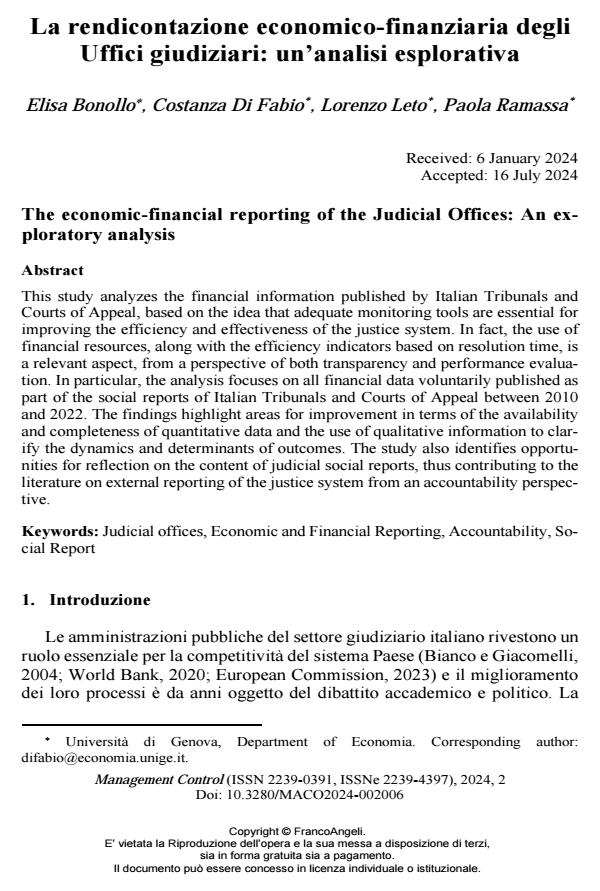The economic-financial reporting of the Judicial Offices: An exploratory analysis
Journal title MANAGEMENT CONTROL
Author/s Elisa Bonollo, Costanza Di Fabio, Lorenzo Leto, Paola Ramassa
Publishing Year 2024 Issue 2024/2
Language Italian Pages 25 P. 115-139 File size 295 KB
DOI 10.3280/MACO2024-002006
DOI is like a bar code for intellectual property: to have more infomation
click here
Below, you can see the article first page
If you want to buy this article in PDF format, you can do it, following the instructions to buy download credits

FrancoAngeli is member of Publishers International Linking Association, Inc (PILA), a not-for-profit association which run the CrossRef service enabling links to and from online scholarly content.
This study analyzes the financial information published by Italian Tribunals and Courts of Appeal, based on the idea that adequate monitoring tools are es-sential for improving the efficiency and effectiveness of the justice system. In fact, the use of financial resources, along with the efficiency indicators based on resolution time, is a relevant aspect, from a perspective of both transparen-cy and performance evaluation. In particular, the analysis focuses on all finan-cial data voluntarily published as part of the social reports of Italian Tribunals and Courts of Appeal between 2010 and 2022. The findings highlight areas for improvement in terms of the availability and completeness of quantitative data and the use of qualitative information to clarify the dynamics and determi-nants of outcomes. The study also identifies opportunities for reflection on the content of judicial social reports, thus contributing to the literature on external reporting of the justice system from an accountability perspective.
Keywords: Judicial offices, Economic and Financial Reporting, Accountabil-ity, Social Report
Elisa Bonollo, Costanza Di Fabio, Lorenzo Leto, Paola Ramassa, La rendicontazione economico-finanziaria degli Uffici giudiziari: un’analisi esplorativa in "MANAGEMENT CONTROL" 2/2024, pp 115-139, DOI: 10.3280/MACO2024-002006